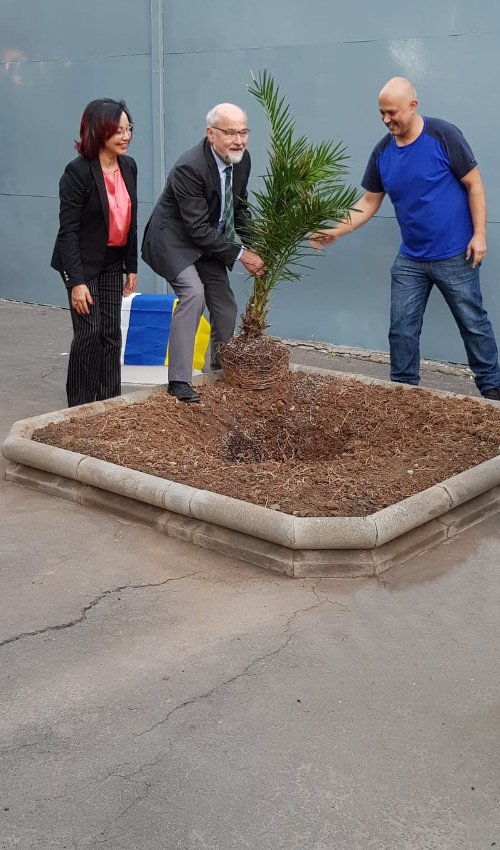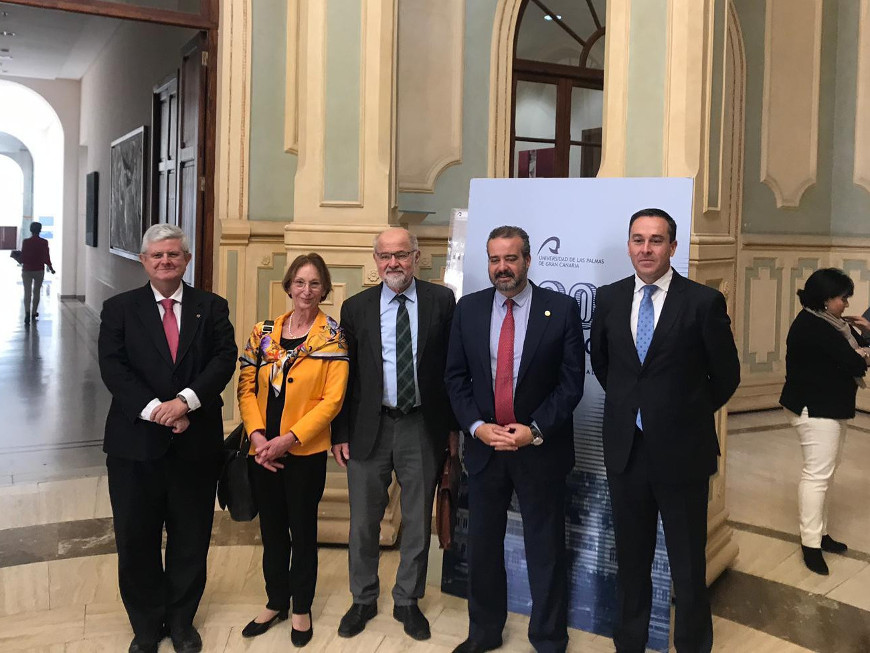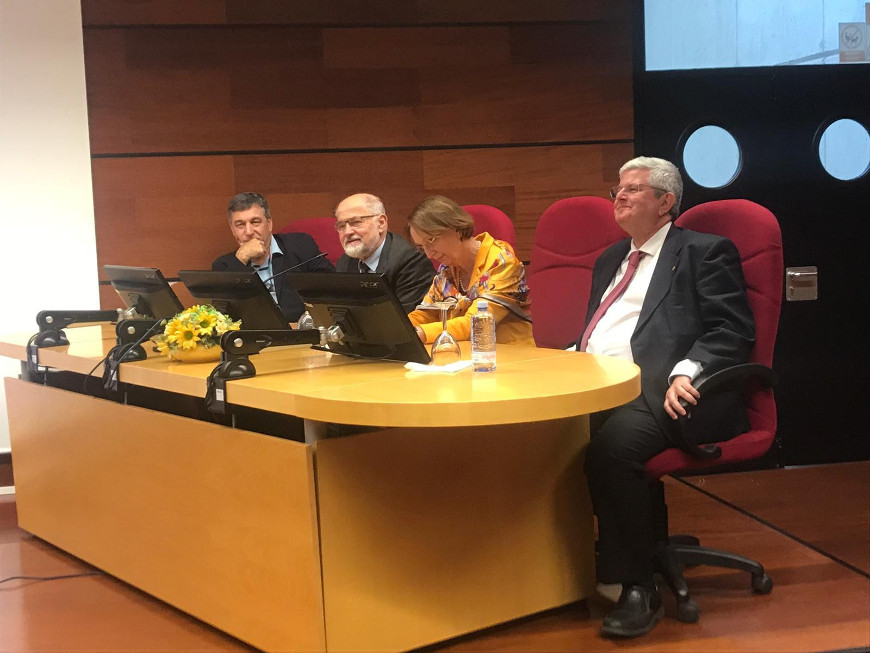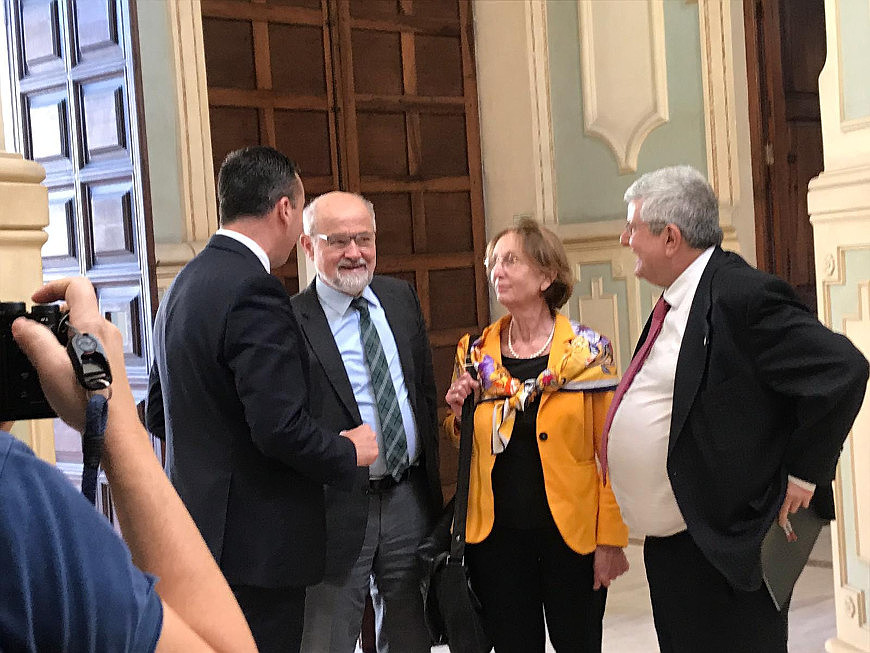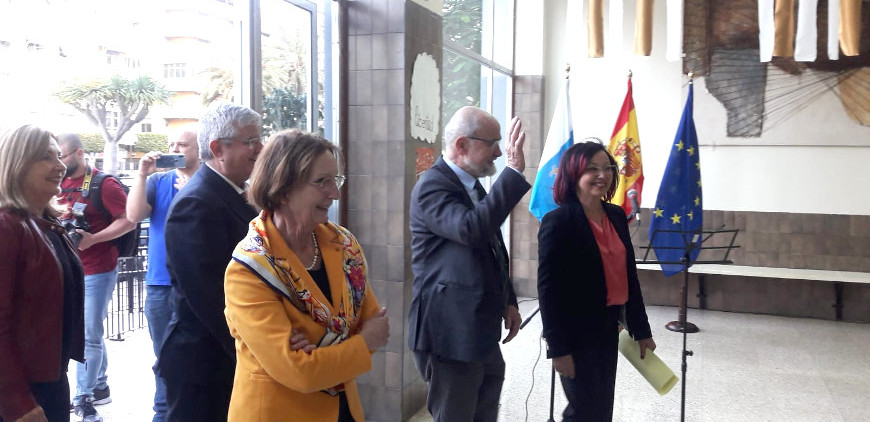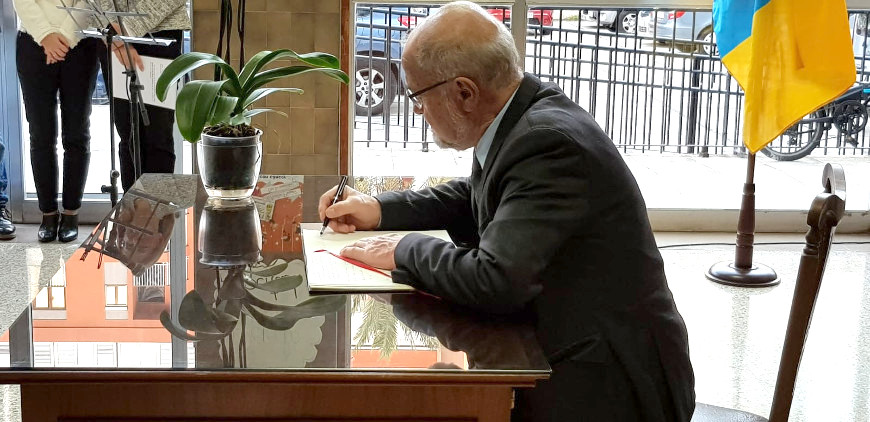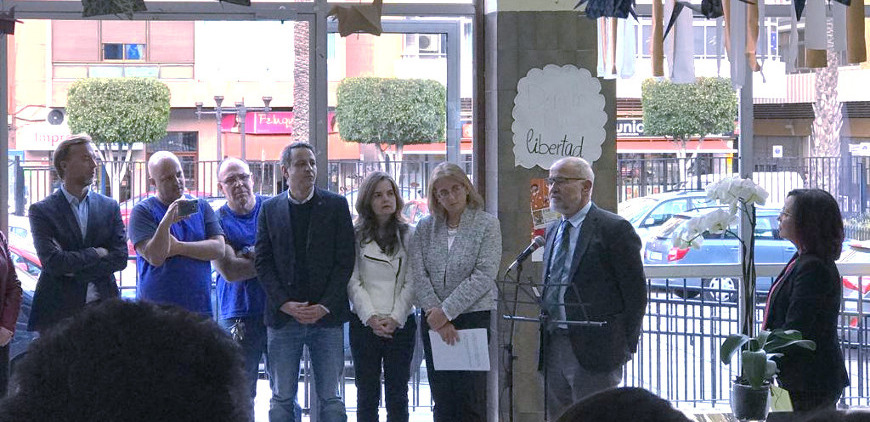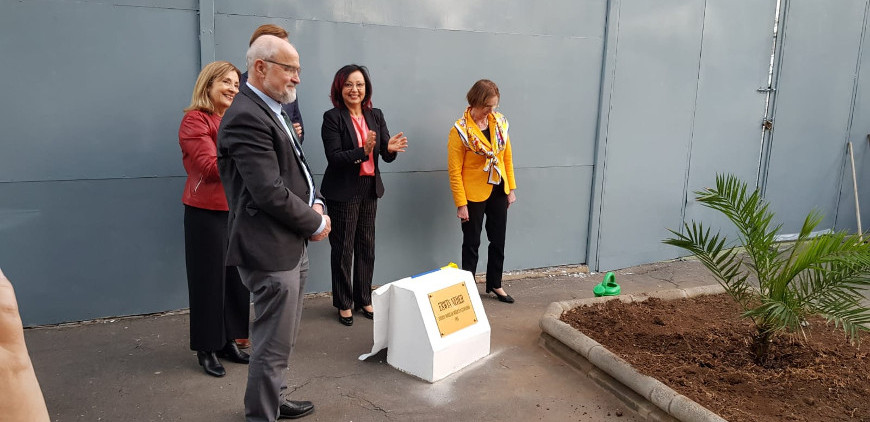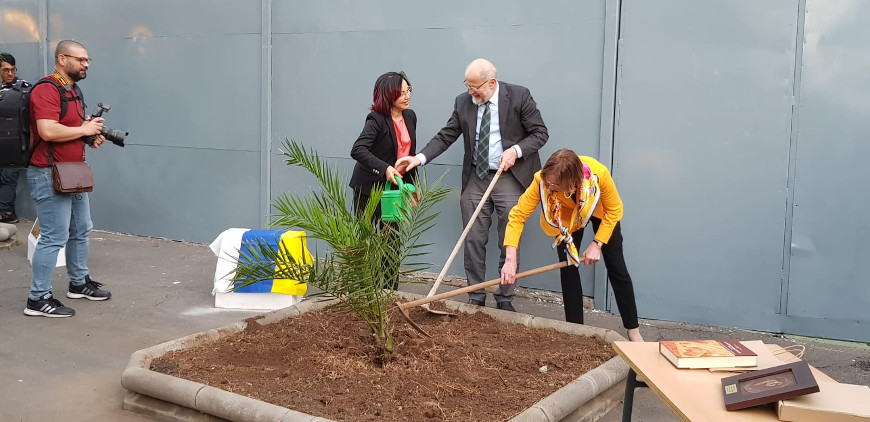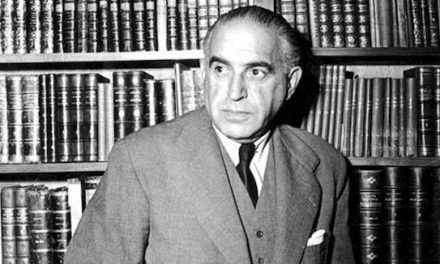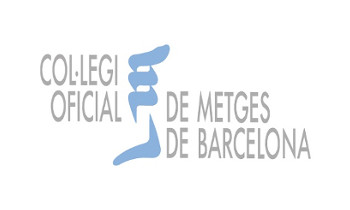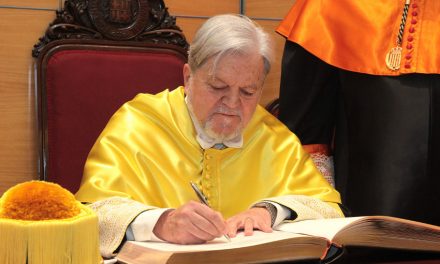Erwin Neher, honorary academician of the RAED, stars with José Ramón Calvo one of the events of the anniversary of the University of Las Palmas
Erwin Neher, Nobel prize in Medicine and Physiology and honorary academician of the Royal European Academy of Doctors-Barcelona 1914 (RAED), participated on February 5 in various events organised by the University of Las Palmas of Gran Canaria with his wife, Eva Neher, biochemist and director of the experimental laboratory XLAB of the University of Göttingen, and the full academician and president of the Institute of International Cooperation of the RAED José Ramón Calvo on the occasion of the 30th anniversary of the Canarian university institution. Both researchers participated in the Nobel Veterinary Campus of the University of Las Palmas.
The Nehers were received by the rector of the University, Rafael Robaina; the mayor of Arucas, Gustavo Viera, and the dean of the Veterinary Faculty, Juan Alberto Corbera, before participating with Antonio Fernández, professor of Animal Pathology at the University of Las Palmas and José Ramón Calvo himself in a debate about science, its importance in the daily life of people and the importance of new generations being involved and trained in research.
Erwin Neher received the Nobel Prize for 40 years of research on the so-called “ion channels”, proteins that direct ion fluxes through membranes, which were discovered in 1976 after Alan Lloyd Hodgkin and Andrew Huxley showed that the nervous impulse is the result of changes in permeability of the nerve membrane. That raised the question about what the molecular mechanisms of such permeability changes might be.
Research has shown that ion channels are not only present in electrically excitable cells, such as nerves and muscles, but also in virtually all types of cells in the body, which are involved in a variety of physiological functions. We now know that they are major drug targets and that the dysfunction of ion channels underlies an increasingly wide variety of diseases.
Eva Neher, meanwhile, designed and launched XLAB in 2000. The centre trains young people in different fields of science through an experimental process. Thousands of young people between 17 and 20 years old from many countries have already passed through it. The programme is eight days in which young people receive an experimental scientific training by scientists working in the full-time installation. It is a project that has generated clear results, since 40% of the participants have subsequently chosen scientific careers from the same area in which they have gained experience.
The Nehers culminated their stay in Gran Canaria with the planting of a Canarian palm tree in the Palm Grove of the Nobel Prizes, located in a secondary school in the city of Las Palmas.


